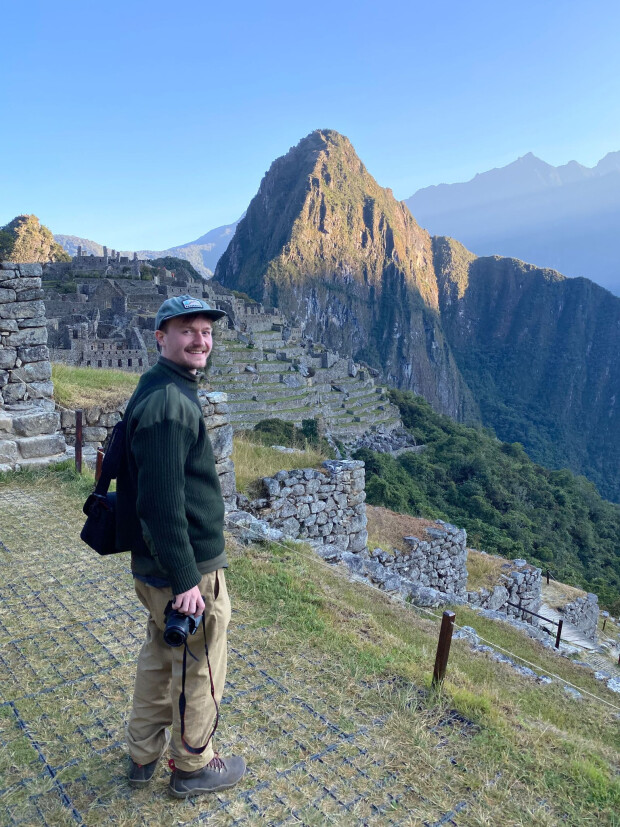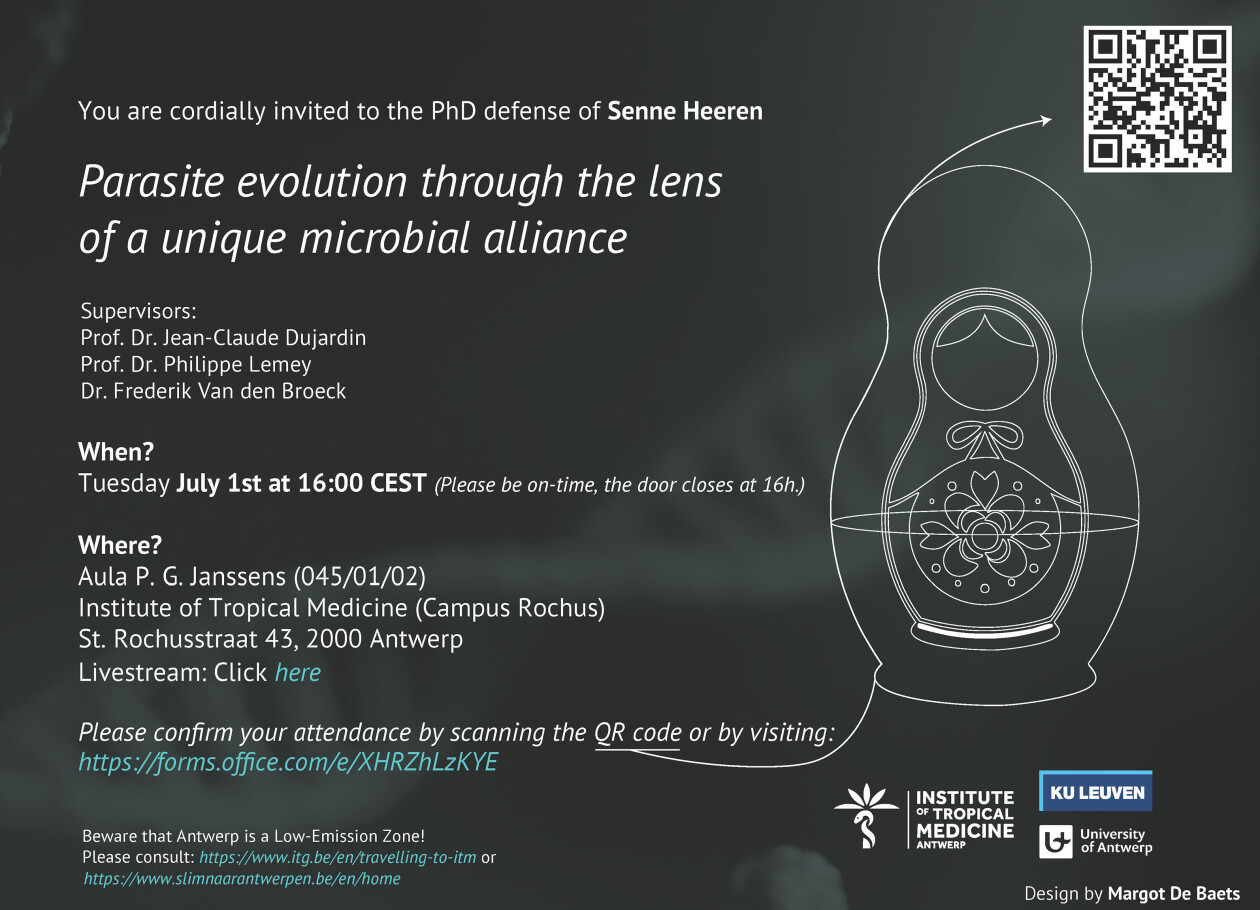PhD defence Senne Heeren
ITG Onderwijscampus Rochus, Aula P.G. Janssens, Sint-Rochusstraat 43, 2000 Antwerpen
Montrer l'itinéraire
Supervisors
Prof. dr. Jean-Claude Dujardin (ITM/University of Antwerp)
Prof. dr. Philippe Lemey (KU Leuven)
Dr. Frederik Van den Broeck (ITM/KU Leuven)
Abstract
Biological interactions are a key component in the maintenance of our ecosystems and nature in general, where all species interact with at least one other species. However, the effect of these interactions, or symbioses, is not always beneficial to all parties. Take viruses for example. Whether or not they are considered organisms, viruses are infectious agents of virtually all life forms on our planet and are well known for their direct impact on plant, animal and human populations. However, there are other viruses that may cause more complex and indirect effects on populations through the infection of other organisms (e.g. bacteria or protozoa) that are, in turn, pathogenic to others (e.g. humans). In these cases, the presence of viruses may complicate the pathogen’s disease dynamics in the host, leading to more severe disease outcomes, treatment failure or symptomatic relapse. These types of viruses were able to remain under the radar for a long time but have been increasingly detected over the past twenty-five years.
One of the best-established examples of such a virus-parasite interaction is the one between Leishmania parasites and Leishmaniavirus (LRV). Here, LRV and Leishmania appear to have a mutualistic relationship where the virus facilitates parasite survival through interaction with the host’s immune response – leading to increased disease progression, exacerbation, and treatment failure – in exchange for the exploitation of proteins required for viral replication and survival. Because of these potentially adverse pathological effects, it becomes important to account for the presence of these viruses in the context of the control and elimination of diseases like leishmaniasis.
The work presented in this thesis was performed to gain a better understanding of the eco-epidemiology and evolutionary history of Leishmania parasites through the lens of their unique microbial alliance with LRV. This revealed two novel findings: (i) the compelling evidence of a strong co-evolutionary history between the virus and parasite across the different taxonomic levels of both Leishmania and LRV; and (ii) the multifaceted importance of Leishmania hybridization in the eco-epidemiology of leishmaniasis and its apparent association with maintaining the genetic diversity of LRV as well as its distribution. With this, our work strongly highlights the need for large-scale and continuous surveillance of pathogens, especially those causing neglected tropical diseases, and raises the importance of research on symbioses in general.
Schedule
Defence: 4 - 6 pm. Please be on time, the door closes at 4 pm. You can also follow online via Zoom once the defence starts at 4: Zoom link
Reception: 6 pm
Please, rsvp here as soon as possible.
Antwerp is a Low Emission Zone and parking availabilities are limited. See for travelling information and parking regulations: https://www.itg.be/en/travelling-to-itm & https://www.slimnaarantwerpen.be/en/home .

Faites passer le mot ! Partagez cet événement sur